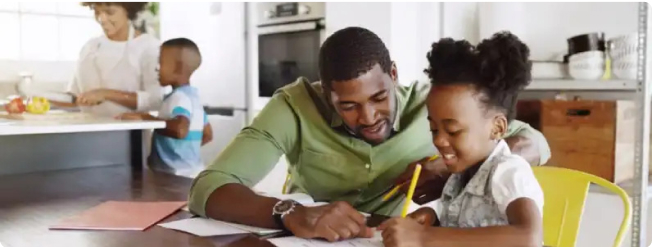Find out if you could be a foster carer
In a few simple questions, you’ll know if you’re suitable to apply to become a foster carer.
New parents sometimes need extra help. We need foster carers to help develop the parents’ skills, so they can learn from you. Parent and child fostering are typically 12-26 weeks long. It’s a complex and demanding area of fostering but one with huge potential to make a difference.
Some parents might lack confidence in their abilities to be a parent to a new baby. They might have to overcome gaps in their own knowledge and experience. Some might not yet know what normal family life looks like. Others might be struggling with disabilities, substance misuse, learning difficulties, domestic abuse or trauma, which can make it hard for them to care for their children.
With parent and child fostering, it’s the role of the foster carer to help them overcome their disadvantages and feel confident in their abilities as parents.
It’s also about satisfying the local authority that the parent under your care can look after their child properly. In these cases, a foster carer will help to assess a parent’s ability and will submit records of daily observations and specified monitoring.
There can be a lot riding on a parent and child placement as the outcome may help determine whether a child remains with their parents or not. This may bring additional pressures.
This fostering service is increasingly requested by the courts because it aims to prevent children from coming into foster care, to provide restorative care to parents, and to break the cycle of abuse.
This type of care has been described as “intense” but very rewarding. We all know how babies need our attention – and this situation is very similar, except you will also be mentoring and sometimes an older child will be involved rather than a baby. Some of the parents that need help will be fast learners; others might need high levels of support.
It can be very rewarding and positive, despite the complex situation. Many parents may not have received positive parenting themselves but, during their placement, they may feel that someone cares about them and respond to a positive role model.
Even in cases where the placement doesn’t work out and the child is taken into foster care, parents may feel that they have, at least, been given a chance. Some parents conclude that it’s the right thing for the child to be taken into care; for others, the skills they learn may enable them to keep future children. Sometimes, bonds formed during a parent and child placement can remain throughout a child’s life.
In addition to the hands-on mentoring, you’ll also be required to write detailed reports as you go along, which will be used by the local authority. You might need to problem-solve by drawing on your own creativity and personal skills to support the parent and child in the best way for them.
If you’re interested in parent and child fostering, you will need experience of previous fostering or of supporting a young mother, father or parents who have high needs and are caring for their own child.
Professionals with specific skills are particularly well-suited, including:
It’s not essential for a parent and child foster carer to have had children themselves.
Our parent and child foster carers don’t do this alone: National Fostering Group provides excellent support and training. Parent and child foster carers receive an enhanced package of support including Positive Parenting training, a dedicated outreach worker specialising in parent and child fostering, fortnightly supervision, weekly update calls and regular reviews with the local authority.
Parent and child foster carers receive enhanced pay and benefits, the backing of an experienced local team, access to 24/7 advice, and training delivered locally in your area.
If you think this type of fostering would suit you, please enquire now.
Louise and Mark have done several parent and child foster care stays, and each has demanded something different of them.
They helped a new young mum who was very anxious and stayed for 10 months until she had come along enough to get her own home.
Another new mum had experienced a brain injury when a child herself; not only did Louise and Mark help her with her parenting skills, they empowered her by helping her understand her case more, so she could become more active in the decisions being made.
“It’s about being there as you would be with your own children and grandchildren, and being there as an extended family for those who have never had a supportive family around them,” says Louise. Read the full version of Louise and Mark’s parent and child foster story.
Parent & Child can be intense but very rewarding and attracts enhanced pay and benefits. A new parent and their baby will live with you, usually for 12 weeks. Your role is to help mum or dad overcome gaps in their knowledge and experience and feel more confident in their parenting abilities. Parent & Child attempts to prevent children from entering foster care, though this is sometimes the case if it’s best for the child. This means the foster carer is required to report on the parent’s progress to a social worker. Discover more about Parent & Child fostering.

